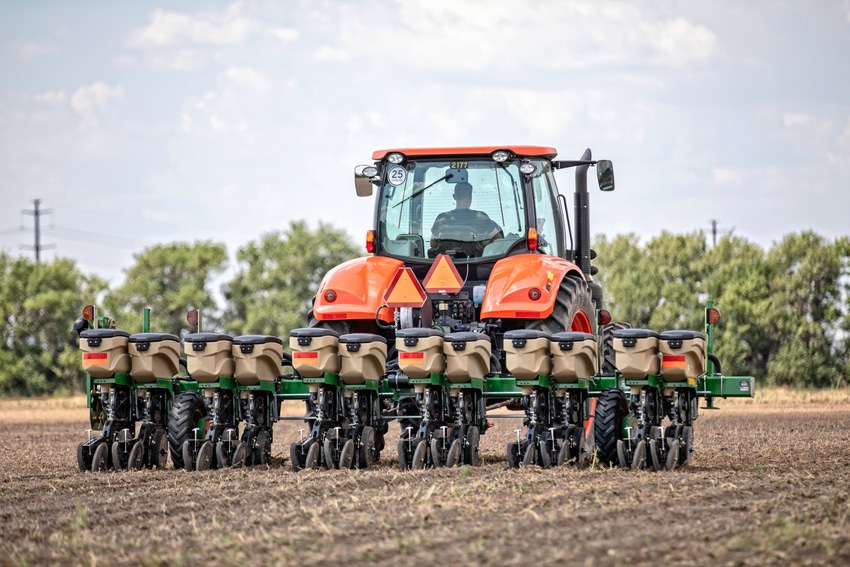September 4, 2018

Peanut farmers know they have a top crop when they plant every spring. They also know that getting that seed in the ground – especially for larger-seeded varieties – can be a challenge. Kansas-based planter maker Great Plains has targeted this crop as a new market opportunity with its latest planter series upgrades.
The new Peanut Planter – or YP625A3PP – has features aimed at some of the challenges that face peanut growers. The key is the new 5000 Series Air-Pro Meter, which is being deployed across the company’s planter line, but includes features that suit it to planting peanuts.
The new meter has been designed for plant spacing between six and nine seeds per foot in twin rows. The peanut plats are capable of achieving 95% singulation accuracy. The poly seed boxes, with 1.6-bushel capacity per row unit, or 3.2 bushel capacity per twin row pair, provide gravity feed.
Editor's note: A video below with Greg Arnett offers a look at the planter and features.
For peanuts there is now a new seed disk that has a larger seed cup, which creates more room for a seed pool in the unit as the machine moves through the field. For larger-seeded peanuts – like Virginia varieties – that means improved material flow. In addition, the air flow into the unit has been increased to improve performance too.
The company also developed a special seed tube for peanuts that works for planting large-variety peanuts. That tube does reduce panting accuracy for other crops, so the standard seed tube can be swapped back in when planting corn, soybeans or smaller peanut varieties.
Greg Arnett, engineering manager, agriculture, Great Plains, offered up some other insight into the machine. “Those larger peanut varieties can be a challenge to singulate,” he explained. “We’ve designed a new seed disk specifically for larger peanuts.” The disk is capable of picking up 48 seeds per revolution, and it rotates more slowly allowing it to more accurately pick up peanuts which allows a higher planting speed.
He shared the story of a farmer driving a test machine who was stopped by a neighbor that asked what he was planting. The farmer shared he was planting peanuts and the neighbor was astonished, because the test farmer was moving at about twice the speed of a normal peanut planter. Arnett said testers were operating this ground-drive planter at speeds nearing 5 mph, well above the normal 2.5 to 3 mph planting speed.
Some peanut seeds can be a challenge, not only for size but due to the nature of the seed and the crop. “Peanuts use seed treatments and some varieties can have oil content that causes problems in planters,” Arnett said. “We experimented with a number of materials for the singulation brushes and the holding brushes. These are now made with a PTFE material which prevents the seed treatment and the oil from the peanut seed from sticking to the peanut brush.”
The cover also has a cleanout brush which helps keep the disk clean as it rotates past singulation, sweeping the back of the holes so it clears seed splits and keeps the disk working properly.
Producers also have the flexibility to apply either a dry or liquid insecticide to handle a variety of pests. The new machine is available in a six-row rigid 3-point model in a twin-row configuration and a choice of 36-, 38- or 40-inch row spacings. A change in the meter wheel allows for easy switch to other crops as well. The planter is available in limited quantities in 2018. For more information, visit greatplaingsag.com.
About the Author(s)
You May Also Like






